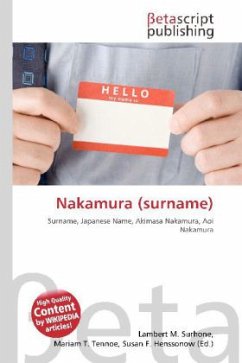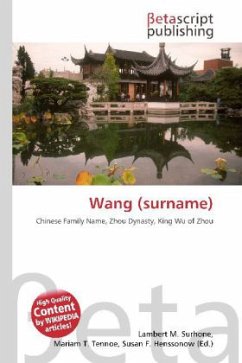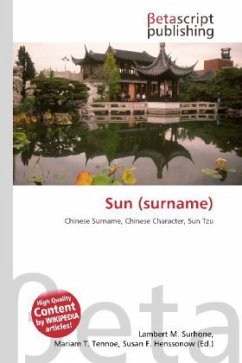Please note that the content of this book primarily consists of articles available from Wikipedia or other free sources online. Japanese names ( , nihonjin no shimei?) in modern times usually consist of a family name (surname), followed by a given name. This order is common in countries that have long been part of the Sinosphere, including among the Chinese, Japanese, Korean and Vietnamese cultures. "Middle names" are not generally used. Japanese names are usually written in kanji, which are characters of usually Chinese origin in Japanese pronunciation. The kanji for a name may have a variety of possible Japanese pronunciations, but parents might use hiragana or katakana when giving a birth name to their newborn child. Names written in hiragana or katakana don''t really bear a meaning, in contrast to given names expressed in kanji. Japanese family names are extremely varied: according to estimates, there are over 100,000 different surnames in use today in Japan. Common family names in Japan include Sat .
Bitte wählen Sie Ihr Anliegen aus.
Rechnungen
Retourenschein anfordern
Bestellstatus
Storno








